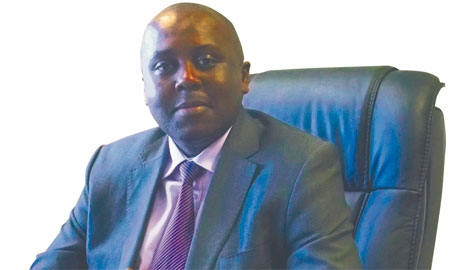The overarching ambition of Vision 2030 is to make Kenya globally competitive and prosperous within the next two decades. It is nothing less than a strategy to transform an entire country.
The blueprint for turning Kenya into a middle-income state has been developed through a nationwide consultative process and has as its foundation the macroeconomic stability achieved since 2002.
Vision 2030 is to be implemented in successive five-year medium-term plans, the first of which, covering the period 2008-2012, is already under way. The strategy has three pillars: economic, social and political.
The economic component aims to improve prosperity through a development programme, covering all the regions of Kenya, which targets a sustained annual growth rate of 10 per cent starting in 2012. The focus is on six sectors in particular – agriculture, tourism, manufacturing, wholesale and retail trade, IT-enabled services and financial services – and there are plans for the creation of special economic zones.
The aim of the social pillar is defined as building a just and cohesive society with social equity in a clean and secure environment. This involves providing wider access to education, healthcare and affordable housing, and making progress towards gender equality.
With Kenya’s recently promulgated new constitution as its flagship, the political component of Vision 2030 is focused on building a fully accountable, democratic system founded on issue-based politics, respect for the rule of law and protection of the rights and freedoms of citizens. Public sector reforms will focus on how the Government engages its citizens.
“Kenya is going to be the first modern African country,” says Mugo Kibati, director general of the Vision 2030 Delivery Board. “The country that we envisage in 2030 will be a great economy and an innovation leader, but it will not be unidimensional. We will be a modern country in every way: economically, socially and politically.”
He says it is important for any country, Kenya included, to ask itself where it wants to be in two decades’ time. “With a 20-year time frame, we are able to conceptualise and can begin to undertake long-term projects that can really transform the nation. We are also able to think seriously about what we are doing today and what impact it will have on future generations.
“For instance, how are we handling our natural environment? Is our education system and syllabus in line with our aspirations? Will we have an adequate number of doctors and nurses in the year 2030? How fast is our population growing, and is that sustainable? Long-term planning is absolutely vital for systematic, focused development,” says Mr Kibati.
The Vision 2030 Delivery Board is a high-level body comprising most of the key permanent secretaries in the country, the governor of the central bank and private sector leaders.
One of its tasks is to liaise between the Government and private sector as most Vision 2030 projects are meant to be undertaken either by the private sector alone or in partnership with the Government.
“Kenya has always had a vibrant private sector, the best in this part of Africa,” says Mr Kibati. “We want the private sector to step up a notch higher, we want big mega-scale investments in this country.”
Building the right foundations, including infrastructure, is crucial to success. “Without a modern developed infrastructure we cannot have industrialisation and we cannot have successful tourist facilities,” he says. “Basic infrastructure – roads and railways, electricity generation and distribution, and fibre-optic cables across the entire country – are all major projects within Vision 2030.
“Other major projects encompass science, technology and innovation. It is important to ensure that we have universities and research institutions that have the calibre of those of a modern country.”
Another of the board’s most important tasks is to inform and involve the Kenyan public. “It is one of our mandates to ensure that every Kenyan is part of Vision 2030, every Kenyan internalises it and every corporate body that is planning and making decisions makes it on the basis of Vision 2030,” says Mr Kibati.
The director general adds that the Vision 2030 Delivery Board is humbly aware of the enormity of the task it has been given. He acknowledges that the journey to 2030 will be more of a marathon than a sprint and that it will require endurance and resilience. But he adds: “The journey has begun and we will succeed.”

0 COMMENTS